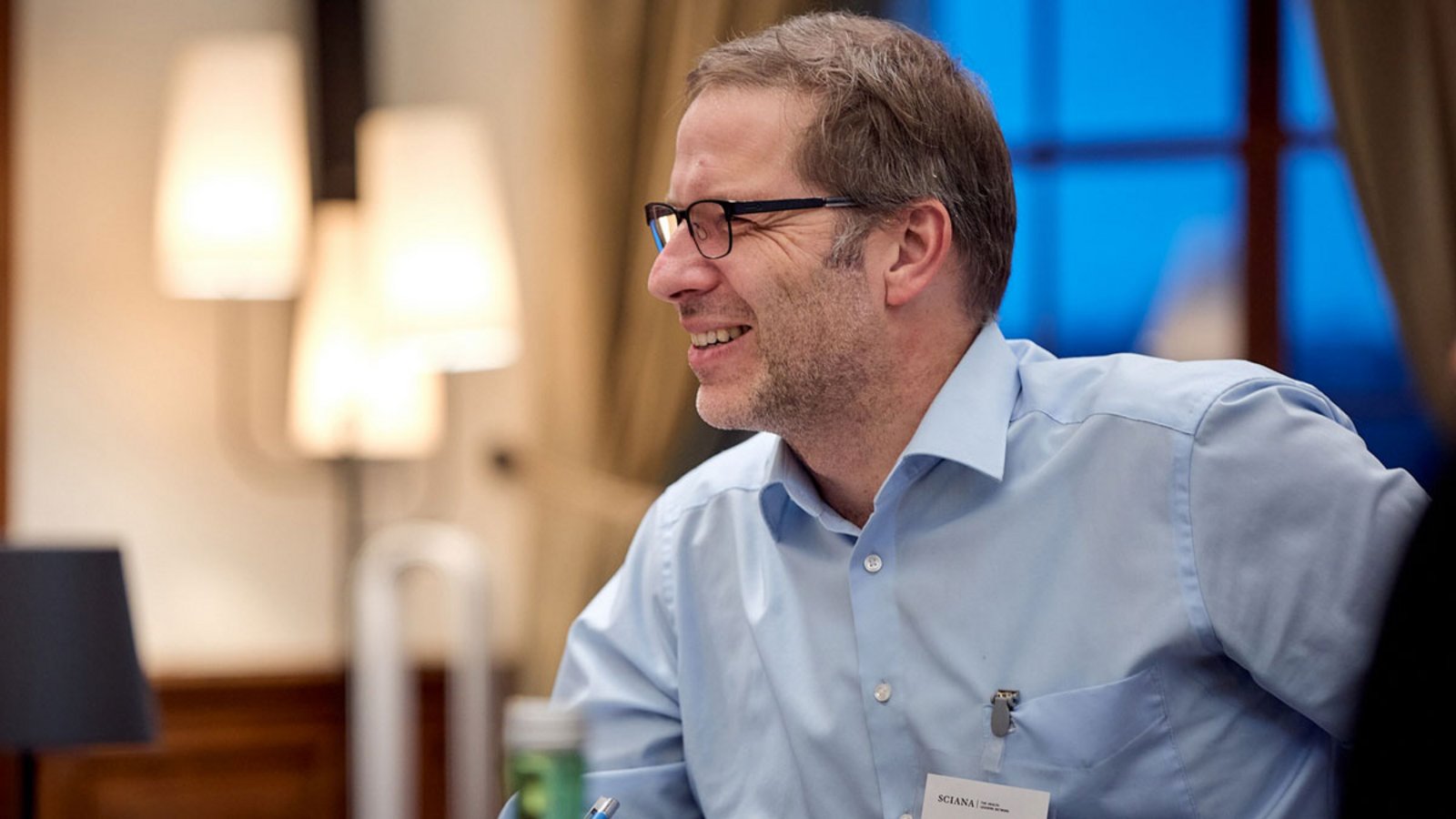 Thorsten Langer at Cohort 4's second residential meeting in November 2022
Thorsten Langer at Cohort 4's second residential meeting in November 2022
Leading a team in times of change: connecting visions with reality
Sciana Fellow Thorsten Langer discusses his work at the Social Paediatric Centre at the University Children's Hospital Freiburg and his thoughts on leadership
For Thorsten Langer, medicine—and paediatrics in particular—has always had a political dimension. As director of the Social Paediatric Centre at the University Children's Hospital Freiburg in Germany, a paediatric neurologist and healthcare researcher, he considers himself a regular witness to the social determinants of health in action in real-time. He says, "Already at the ages of three to five years, you get a sense where the journey is going as a result of the environment in which children grow up."
Thorsten works closely with people with chronic and complex conditions, such as cerebral palsy, epilepsy, and people who show signs of developmental delay. Many of the patients he delivers care for and the families he supports come from vulnerable backgrounds and have limited German proficiency.
In addition to his above roles and responsibilities, he is a member of several working groups within the German Society of Social Paediatric and Adolescent Medicine. Thorsten is also a member of Sciana's fourth cohort. We spoke with him about his day-to-day work, leadership, and experience as a Sciana Fellow.
Thorsten is passionate about his work, his patients, and his team. "I see patients one to two days a week, and the other days, I do the research. I do the leadership work inside and outside my organisation. It's a bit of a stretch sometimes, but I think it's—at least for me—really important to still have the connection to the patient care for my own compass.
"We are a team of different professionals who take on different roles. Seeing patients together creates a very special connection within the team. There is a strong identity that helps [us] overcome the challenges we meet."
He is looking out for the team and helping others to adapt. "The basis of our work at the Social Paediatric Centre is that the team is [doing] okay. The [COVID-19] pandemic has taught us how fragile individuals and teams actually are and that you should not take it for granted. If we are totally stretched out, we cannot take care of our patients. It is also not possible to take on new projects and challenges—and yes, there [is] a lot out there waiting for us.
"Interestingly, it is sometimes hard for healthcare workers to apply the skills they offer patients to themselves. For example, we accompany and support families to adapt when it turns out their child has a disability. In this context, we offer adaptive leadership and help families find their own way to deal with complex challenges. On the other hand, we sometimes struggle to apply adaptive leadership skills to ourselves when we face complex challenges in our organisations, e.g. when we implement digital processes. It really takes an effort to activate such resources for our own sake in order to find solutions."
He is driving change and promoting innovation for better prevention. "We face huge challenges on all levels of the healthcare system, e.g., an ageing workforce, migration, digitalisation, and scarce resources. Obviously, innovative solutions are required everywhere. However, hospitals were never known for being particularly agile—there was just no need. This has changed. For example, I think that hospitals should develop new services to improve secondary and tertiary prevention.
"Hospitals are sometimes disparagingly dismissed as 'repair shops' that fix damage that could have been better prevented through better primary prevention. For me, this does not do justice to the knowledge and experience of many hospital staff. What if we could use this knowledge and commitment to improve prevention so that people stay out of hospitals? Therefore, we need to learn to work with innovation experts to develop novel approaches for the care work. Lately, this became a new part of my job, which I truly enjoy."
For Thorsten, leadership means listening. "There are different ways how you can be a leader in healthcare. Personally, I think a leader should be able to frame the challenges we are facing, which might be outside the organisation, and narrate them in a way which is meaningful to our daily work and to the folks we work with and find solutions in a collaborative way. I think this comes from going outside the organisation, looking at it, getting inspiration from places like [the Sciana Network], and taking it back.
Being involved with Sciana has opened his mind up and expanded his access to a community of support from like-minded health leaders. "I was looking for something which kind of links healthcare to the policy level. I saw Sciana and thought, 'That sounds really interesting.'
"In my role as a leader in my department, I sometimes feel like a scout who explores and explains what is waiting for us and how we can prepare ourselves. On the other hand, having the practical experience of working with colleagues and with patients helps me contextualise certain trends and hypes out there. Sciana helped me a great deal to reflect [on] my personal leadership role as a continually developing part of me.
"But what really fascinates me and what I do not want to miss is the trustful connection to other leaders who come from very different backgrounds but still often share similar experiences and challenges. This connection is invaluable.
"[Sciana's] an international network, and it's really fascinating. All of us are from rather rich countries, so even if it is a European network, it might be an idea to expand, to cover less affluent countries, and maybe open up that area as well. That might offer some interesting and important experiences, I think."




